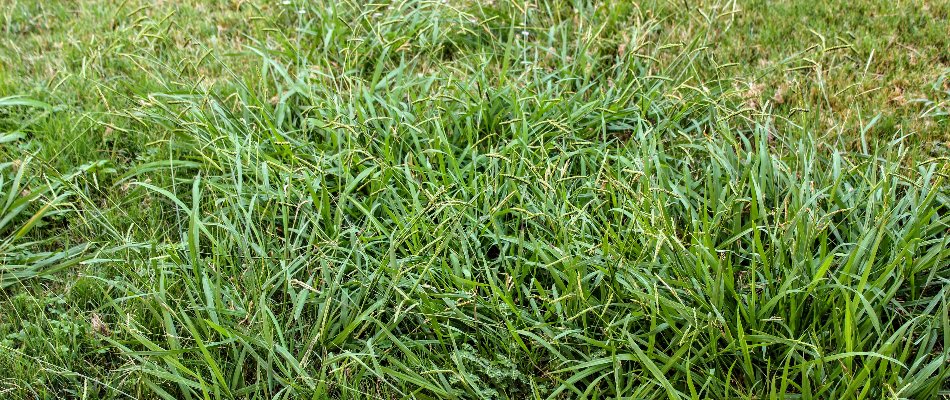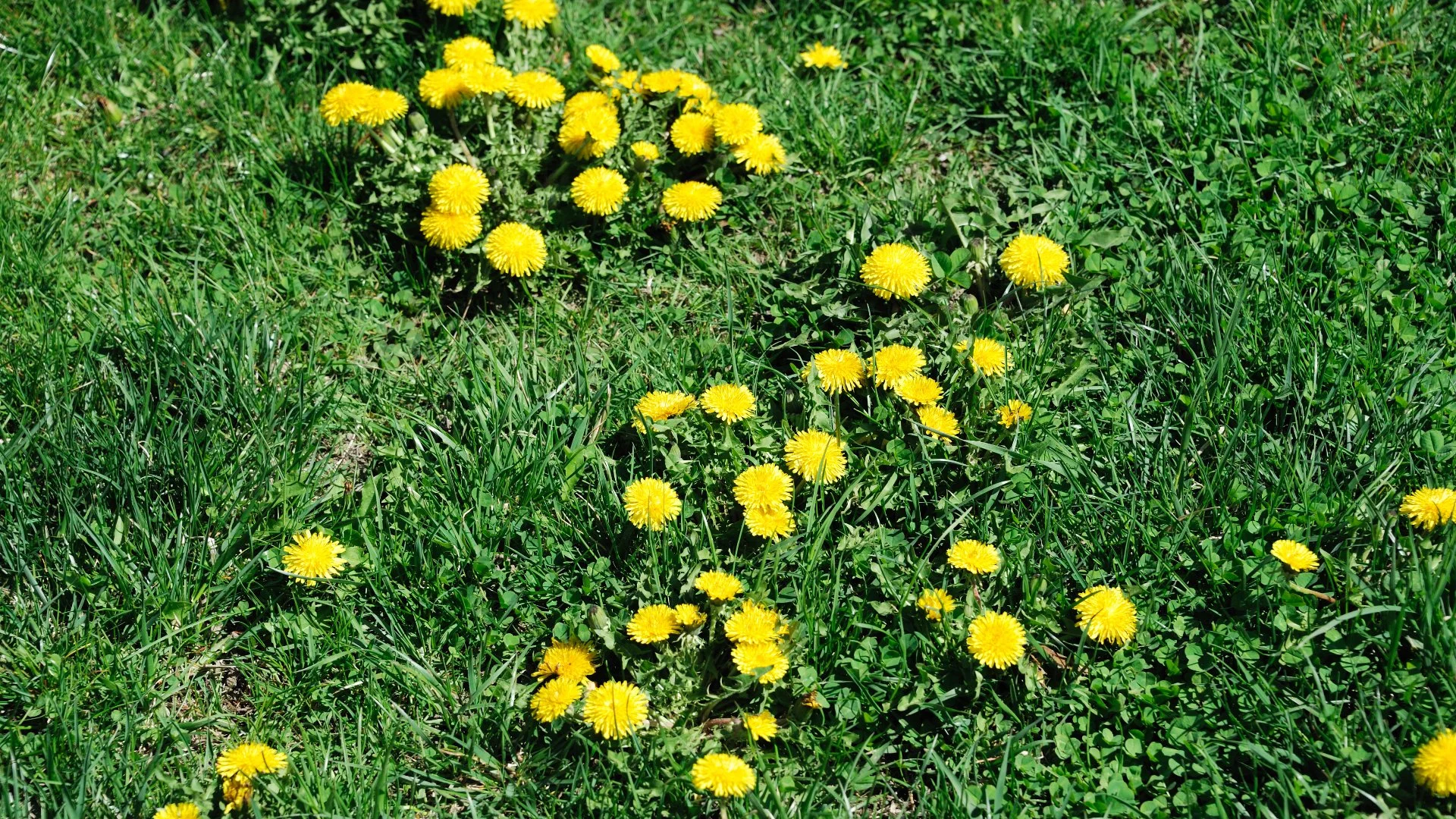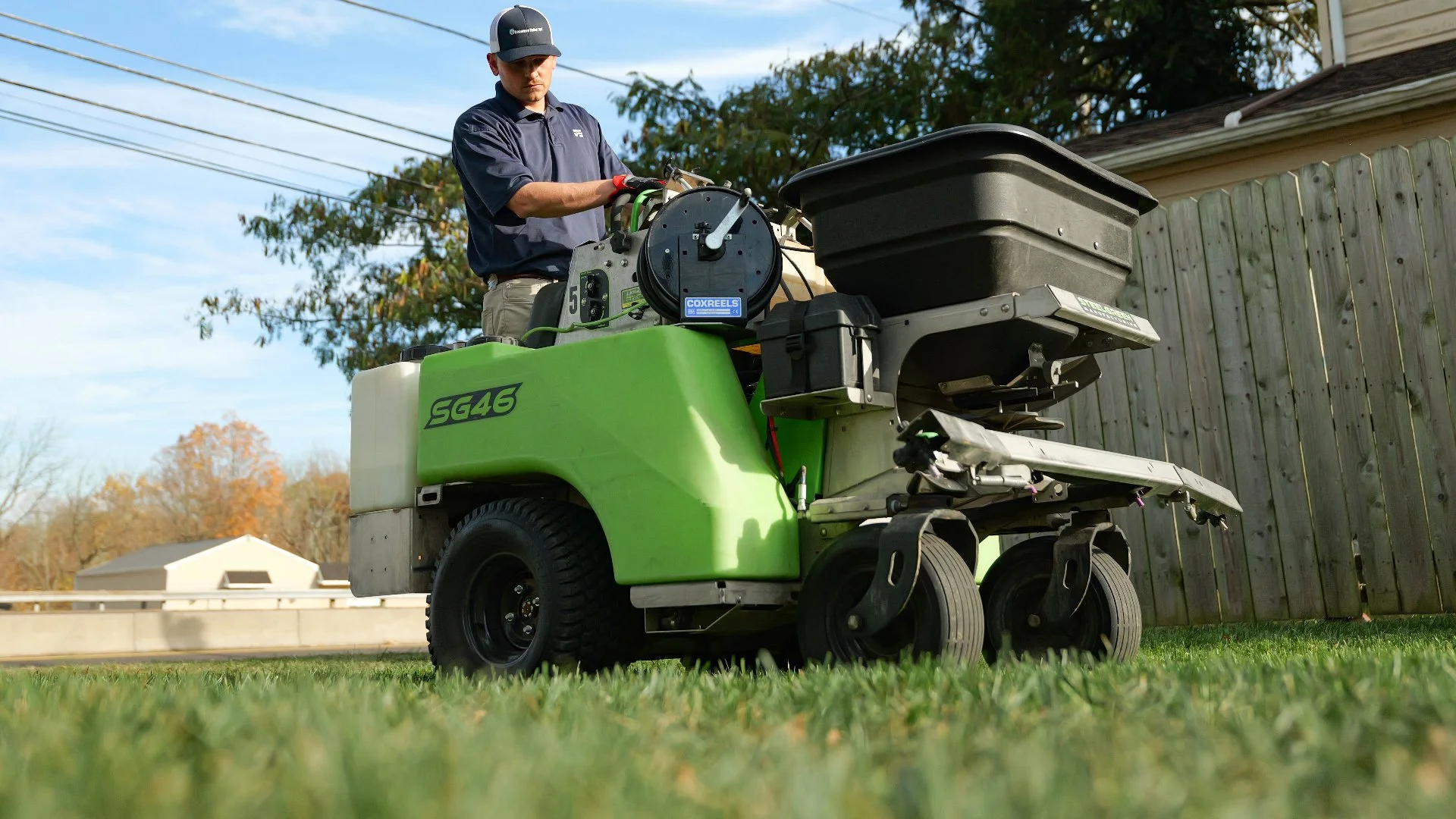Weeds are a nuisance for lawns in Delaware and Pennsylvania, but understanding the different types can help you better manage them. Grassy and broadleaf weeds are two common categories. Grassy weeds, like crabgrass and foxtail, resemble grass and are often mistaken for desirable turf. They can quickly spread and outcompete your lawn for nutrients and space. On the other hand, broadleaf weeds, such as dandelions and clover, have wider leaves and are more easily identifiable. They can disrupt the appearance of your lawn and compete with it for resources. To effectively control both grassy and broadleaf weeds, it's best to enroll in a professional weed control program. These programs typically involve the application of pre- and post-emergent weed control treatments throughout the growing season to keep your lawn weed-free.
What are grassy weeds?

Grassy weeds are a common type of weed that can invade your lawn. As the name suggests, these weeds closely resemble grass, making them difficult to distinguish from your desired turf. Grassy weeds have narrow leaves and rounded or flattened stems. They are also monocots, meaning their seeds grow a single leaf. Some common examples of grassy weeds include crabgrass and foxtail.
These weeds can be particularly troublesome because they often blend in with your lawn, making them hard to spot until they've already spread. Grassy weeds can quickly take over if left unchecked, competing with your grass for nutrients and space.
What are broadleaf weeds?

Broadleaf weeds are another common type of weed that can invade your lawn. Unlike grassy weeds, broadleaf weeds have wider or broader leaves that grow in different directions. These leaves often have veins that branch out across them, giving them a distinctive appearance. Some common examples of broadleaf weeds include dandelions, clover, chickweed, wild violet, and creeping Charlie.
Broadleaf weeds are usually more noticeable because they don't look like grass. They can disrupt the uniform appearance of your lawn and compete with it for nutrients and space. Broadleaf weeds can be particularly persistent and difficult to control if not addressed promptly.
What's the best way to control grassy and broadleaf weeds on your lawn?
Controlling both grassy and broadleaf weeds is essential for maintaining a healthy and attractive lawn. The most effective way to keep these weeds at bay is to sign up for a professional weed control program. These programs are designed to provide comprehensive weed control throughout the growing season.
Professional weed control programs typically include the application of both pre- and post-emergent weed control treatments. Pre-emergent treatments are applied before weeds surface, preventing them from growing in the first place. On the other hand, post-emergents are used to eliminate existing weeds that have already sprouted.
By enrolling in a professional weed control program, you can rest assured that your lawn will receive the necessary treatments to keep both grassy and broadleaf weeds under control. They are typically tailored to the specific needs of your lawn and are applied several times from spring until fall to ensure consistent weed control.
Call us today to schedule our weed control service!
At Delaware Valley Turf, we offer a top-notch weed control service that will keep your lawn free of both grassy and broadleaf weeds. When you sign up for this service, we will visit your property six times from March until November to apply both pre- and post-emergent weed control treatments, preventing weeds from sprouting on your lawn and eliminating any existing growth. Not only that, but this service also includes fertilization to keep it healthy and lush!
We offer our weed control service to residential and commercial property owners in Newark, DE, Doylestown, Blue Bell, PA, and surrounding areas. Call us today at (610) 328-4170 to schedule!






Comments (0)
Thanks for your comment!
Thanks for your feedback! Your comments have been successfully submitted! Please note, all comments require admin approval prior to display.
Error submitting comment!
There is a problem with your comment, please see below and try again.